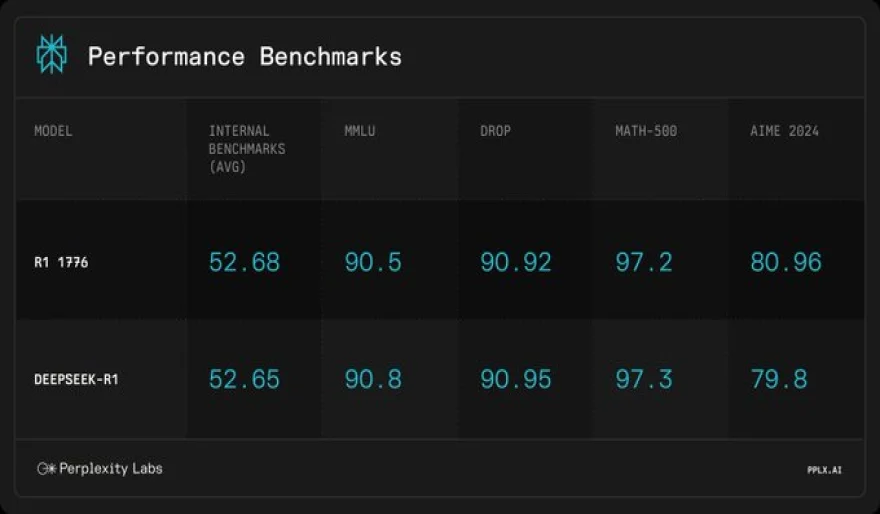Stay Ahead of the Curve
Latest AI news, expert analysis, bold opinions, and key trends — delivered to your inbox.
Perplexity AI has launched 'R1 1776 - A Step Towards Uncensored AI or Just Another Bias?
4 min read Perplexity AI has launched 'R1 1776', a version of the DeepSeek R1 model designed to provide uncensored, unbiased, and factual information. February 19, 2025 13:57
Perplexity AI has recently introduced 'R1 1776', a version of the DeepSeek R1 model designed to provide uncensored, unbiased, and factual information. The model is post-trained to address censorship concerns, particularly related to sensitive topics associated with the Chinese Communist Party (CCP). According to posts on X, the initiative includes developing a diverse, multilingual evaluation set to ensure that the model maintains its reasoning and math abilities while staying uncensored on sensitive subjects. The model's weights are now available on Hugging Face, highlighting Perplexity AI's commitment to open-source technology. However, some observations suggest that R1 1776 may still avoid CCP-censored topics, indicating that its uncensored nature might have certain limitations.
Supportive Perspectives:
- Access to Uncensored Information: Supporters see R1 1776 as a step towards more transparent information dissemination, particularly for politically sensitive issues. This is viewed as beneficial for users seeking comprehensive and unbiased knowledge.
- Open-Source Innovation: The decision to open-source R1 1776 has been positively received by tech enthusiasts who believe it promotes innovation and democratizes AI technology by preventing centralized control by corporations or governments.
- Enhanced Reasoning and Trust: Early users have noted the model's strong reasoning capabilities and transparent "chain of thought" process, which they believe increases trust in the AI’s information sourcing.
Critical Perspectives:
- Concerns About Potential Bias: Some critics argue that while R1 1776 aims to eliminate Chinese censorship, it could introduce other forms of bias, particularly Western perspectives, influenced by its naming and cultural context.
- Questions on True Uncensoring: There is skepticism about the extent of its uncensoring, with some suggesting that the model may still filter or sanitize responses on globally contentious topics.
- Ethical and Political Implications: Some commentators raise ethical questions about targeting specific censorship practices while potentially overlooking biases from other cultural or political contexts.
Neutral and Balanced Perspectives:
- Cautious Optimism: A segment of the community acknowledges the positive intentions behind R1 1776 but remains cautious about its execution. They emphasize the need for ongoing evaluation and refinement to achieve truly unbiased information dissemination.
- Focus on Broader Impact: Some observers are interested in the model’s implications for AI ethics, data privacy, and global information access. They highlight the importance of understanding its impact across diverse cultural and political landscapes.
- Advocacy for Community Involvement: There is a call for greater community participation in testing and refining the model, ensuring it evolves in a transparent and representative manner through open-source collaboration.
Overall Perspective:
Reactions to Perplexity AI's R1 1776 are mixed, reflecting broader debates about AI’s role in censorship and information freedom. The model is seen as a significant step towards more transparent information access, but questions remain about its implementation, potential biases, and broader ethical implications.



















 AI Agents
AI Agents